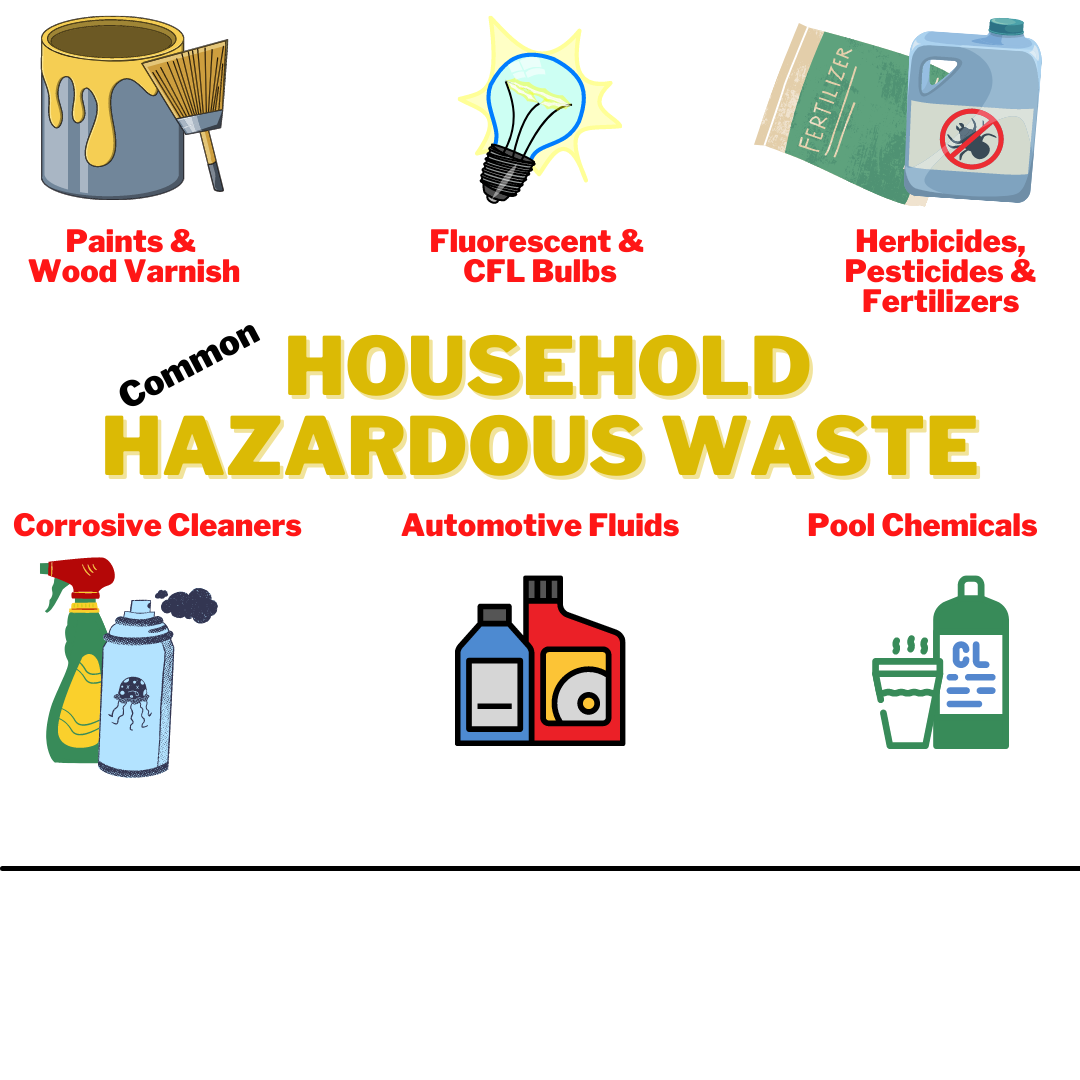
Introduction: Navigating the Challenge of Hazardous Waste Disposal
Proper disposal of household hazardous waste is a responsibility that ensures the safety of both individuals and the environment. In this article, we’ll delve into the importance of disposing of hazardous waste correctly and provide practical guidelines for managing these potentially harmful materials.
Identifying Household Hazardous Waste: Know What You Have
Household hazardous waste includes a range of items such as paints, solvents, pesticides, batteries, and electronic waste. Before disposal, it’s crucial to identify these materials in your home. Check product labels for warnings and symbols indicating hazardous content. Being aware of what you have is the first step in responsible disposal.
Separation and Storage: Minimizing Risks at Home
Once identified, separate hazardous waste from regular household waste. Store these materials in a designated and secure area away from children and pets. Use sealed containers to prevent leaks or spills. Proper storage minimizes the risk of accidents and ensures that hazardous materials don’t mix with regular trash.
Local Disposal Guidelines: Understanding Regulations
Different regions have specific regulations regarding the disposal of household hazardous waste. Familiarize yourself with local guidelines to ensure compliance. Check with your local waste management facility or visit their website for information on designated drop-off locations, collection events, or curbside pickup services for hazardous materials.
Paints and Solvents: Proper Disposal Methods
Paints and solvents are common household hazardous wastes. If these items are still usable, consider donating them to community projects or organizations. For disposal, check if your local waste management facility has a paint recycling program. If not, let paint dry out completely before disposing of it with regular trash.
Pesticides and Herbicides: Handle with Care
Unused or expired pesticides and herbicides pose risks to human health and the environment. Follow label instructions for proper disposal. Some areas offer agricultural or household hazardous waste collection events where you can drop off these chemicals. Do not pour them down drains or dispose of them in regular trash.
Batteries and Electronics: Recycling Opportunities
Batteries, especially rechargeable ones, contain hazardous materials like lead and cadmium. Many retailers and recycling centers accept used batteries for proper disposal. Additionally, electronic waste, such as old computers and phones, can often be recycled. Look for electronic recycling programs or collection events in your area.
Medications and Pharmaceuticals: Safe Disposal Practices
Expired or unused medications should not be flushed down the toilet or thrown in the trash. Instead, check for local drug take-back programs or collection sites. Pharmacies and law enforcement agencies often participate in these initiatives to ensure safe and proper disposal of pharmaceuticals, preventing environmental contamination.
Light Bulbs and CFLs: Mindful Handling
Certain types of light bulbs, like compact fluorescent lamps (CFLs), contain small amounts of mercury. These should not be disposed of in regular trash. Many hardware stores and recycling centers accept CFLs for recycling. Check local guidelines for proper disposal options for different types of light bulbs.
Automotive Products: Dispose Responsibly
Used motor oil, antifreeze, brake fluid, and other automotive products are considered hazardous waste. Many auto supply stores and service stations accept used motor oil for recycling. Some municipalities have collection programs for other automotive fluids. Always follow local guidelines for the proper disposal of these materials.
Education and Outreach: Spreading Awareness
Raising awareness about proper household hazardous waste disposal is essential. Share information with friends, family, and neighbors about local disposal options, collection events, and the importance of responsible waste management. Community education plays a significant role in creating a safer and more sustainable environment.
Conclusion: A Collective Effort for a Safer Environment
Properly disposing of household hazardous waste is a shared responsibility that requires individual and community commitment. By following guidelines, separating materials, and utilizing local disposal options, we contribute to a safer and healthier environment. For more information and resources on responsible waste management, visit thietbidinhvithongminh.com. Dispose of household hazardous waste responsibly for the well-being of our communities and the planet.
